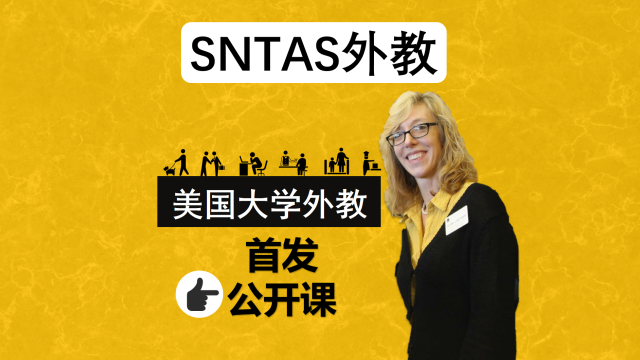The word break is fairly commonly used in English, so you have surely seen it in books, heard it in movies, or learned it in school. By itself, it usually means to make a crack in something as is used as a verb.
break這個(gè)詞在英語(yǔ)中相當(dāng)普遍�,所以你肯定在書中見(jiàn)過(guò)�����,在電影中聽(tīng)到過(guò),或者在學(xué)校里學(xué)過(guò)����。就其本身而言,它通常意味著在用作動(dòng)詞的某物上做一個(gè)破綻����。
There are many phrases and sentences where it means just that. However, there are also many phrases in which break means something entirely different or is used as a noun! Here are some of those more common phrases.
有很多短語(yǔ)和句子都有這個(gè)意思。然而�,也有許多短語(yǔ)中,break的意思完全不同�,或者用作名詞!下面是一些比較常見(jiàn)的短語(yǔ)���。
Break synonyms
break的近義詞
Break has many synonyms, and each of its possible meanings has more synonyms. Here is a selection:
Break有很多同義詞����,每個(gè)可能的意思都有更多的同義詞���。這里有一個(gè)選擇:
shatter, smash, fracture, crack, pierce, divide, unravel, decipher, disturb, interrupt, mitigate, drop, surpass, beat, give way, destroy, crush, falter, erupt, time off, holiday, gap, opening, etc.
粉碎�、粉碎�����、破裂、破裂���、刺穿���、分裂、解開(kāi)�����、破譯��、擾亂���、中斷�、減輕�、下降、超越�����、毆打�����、讓路�����、摧毀����、粉碎、動(dòng)搖�����、爆發(fā)�����、休息�、假期、間隙����、開(kāi)口等。
Break vs Fracture
Break和Fracture的區(qū)別
Break can be used to describe any kind of shattering. Anything can break. However, a fracture is something that happens only to bones. Bones do break, but the professional medical term is fracture.
Break可以用來(lái)形容任何類型的粉碎����。任何東西都可能破裂��。然而�,骨折只發(fā)生在骨頭上�。骨頭確實(shí)會(huì)骨折,但專業(yè)醫(yī)學(xué)術(shù)語(yǔ)是骨折�����。
Break Past Tense
break的過(guò)去式
The past tense of break is broke, or broken.
break的過(guò)去式和過(guò)去分詞是broke和broken
Break as a Verb
break作為一個(gè)動(dòng)詞
1. Break away
逃脫
To break away means to achieve freedom from captivity. It is used to describe liberation, either physical or mental. Break away is associated with escaping someone’s hold, or escape from the control of something or someone else.
脫離意味著從囚禁中獲得自由�����。它被用來(lái)描述解放����,無(wú)論是身體上的還是精神上的�����。脫離是指逃離某人的控制���,或逃離某事物或其他人的控制。
2. Break in / into meaning
闖入
Break in means to forcefully enter a place. A break in means a robbery. When you’re breaking into a place you are forcing entry. It is most commonly connected to criminal actions.
強(qiáng)行闖入意味著強(qiáng)行進(jìn)入一個(gè)地方�����。闖入意味著搶劫。當(dāng)你闖入一個(gè)地方時(shí)����,你是在強(qiáng)行進(jìn)入。它通常與犯罪行為有關(guān)����。
3. Break Out
突破
Break out has many different meanings. In general it means to leave a place forcefully. To break out of prison is a common example. However, to break out on your skin means to have a rash. To break out of your shell can mean to be liberated. Whenever you’re trying to describe forcefully leaving a place a literal or figurative way, you use break out.
break out有很多不同的含義。一般來(lái)說(shuō)�,它是指強(qiáng)行離開(kāi)一個(gè)地方。越獄是一個(gè)常見(jiàn)的例子��。然而���,在你的皮膚上爆發(fā)意味著有皮疹��。脫殼就意味著解放��。當(dāng)你試圖用文字或比喻的方式來(lái)有力地描述離開(kāi)一個(gè)地方的時(shí)候�����,你就用“break out”�。
4. Break Wind meaning
To break wind means to release gas. In colloquial speech it means to fart.
放風(fēng)就是釋放氣體。在口語(yǔ)中��,它的意思是放屁���。
5. Break a Sweat meaning
When you’re doing physical activities you can start to sweat. When that happens you break a sweat.
當(dāng)你做體力活動(dòng)時(shí)�,你會(huì)開(kāi)始出汗�。當(dāng)這種情況發(fā)生時(shí),你會(huì)大汗淋漓��。
6. Break Off meaning
When something breaks off it is divided from a larger whole. To divide means to snap off, come off, or in general to be separated or divided.
當(dāng)某物斷裂時(shí)��,它就從一個(gè)更大的整體中分離出來(lái)���。分開(kāi)是指折斷��、脫落��,或大體上被分開(kāi)或分開(kāi)���。
7. Break a habit
To break a habit means to stop doing something that you often do in your routine. For example, if you normally reach for your phone right when you wake up, that is a habit. To break the habit means to stop reaching for your phone right when you wake up, and instead meditating or washing up first.
改掉一個(gè)習(xí)慣意味著停止做一些你在日常生活中經(jīng)常做的事情。例如�����,如果你通常在醒來(lái)的時(shí)候伸手去拿手機(jī),那是一種習(xí)慣。打破這個(gè)習(xí)慣意味著當(dāng)你醒來(lái)的時(shí)候不要再伸手去拿你的手機(jī),而是先冥想或洗個(gè)澡��。
Examples
例子
Breaking a habit is really difficult, but my business coach helped me get right into content creating when I wake up instead of answering emails./ To establish a good habit is hard, but to break a bad habit may be even harder./ If you want to break your habit of chewing on your fingernails when you are nervous, try to dip them in lemon juice in the morning or paint them with various colors of nail polish.
改掉一個(gè)習(xí)慣真的很難����,但是我的商業(yè)教練在我醒來(lái)的時(shí)候幫助我開(kāi)始創(chuàng)造內(nèi)容,而不是回復(fù)郵件��。/養(yǎng)成一個(gè)好習(xí)慣很難�,但是改掉一個(gè)壞習(xí)慣可能更難。/如果你想改掉緊張時(shí)嚼指甲的習(xí)慣�����,早上試著把它們浸在檸檬汁里���,或者涂上各種顏色的指甲油���。
8. Break a bone, break your arm
If you accidentally injure yourself by cracking or fracturing a bone, you break your bone. To break your arm, leg, pelvis, wrist, or other body part means to break the bone in that body part. For children, this is a very common thing to have happen. If you have never broken a bone, some people will be very surprised to hear it.
如果你不小心弄斷了骨頭而傷到了自己,那你就是弄斷了骨頭�����。折斷手臂���、腿�、骨盆�����、手腕或其他身體部位意味著折斷該身體部位的骨頭。對(duì)孩子們來(lái)說(shuō)�����,這是很常見(jiàn)的事情����。如果你從來(lái)沒(méi)有斷過(guò)一根骨頭�,有些人會(huì)很驚訝聽(tīng)到它。
Examples
例子
My son fell out of a tree yesterday morning, so we took him to the hospital because we thought he might have broken his wrist.
The doctor that you see if you break your bones is an orthopedic surgeon. If you take care of yourself, use a cast, and use your crutches, you can recover quickly even if you break your leg.
我兒子昨天早上從樹(shù)上摔下來(lái)�����,所以我們把他送到醫(yī)院��,因?yàn)槲覀冋J(rèn)為他可能摔斷了手腕�。如果你骨折了,你要去看的醫(yī)生是個(gè)骨科醫(yī)生����。如果你照顧好自己,使用石膏����,使用拐杖���,即使你摔斷了腿,你也能很快康復(fù)����。
9. Break a leg!
This is an idiom that you say to performers such as actors, dancers, or singers. It means good luck. If you think this idiom sounds weird, it is! It seems like you are wishing that something bad will happen to the actress. However, this idiom comes from the fact that historically, actors are superstitious. They believe that something bad will happen if you tell them good luck directly, but wishing back luck to someone will lead to something good happening.
這是你對(duì)演員、舞者或歌手等表演者說(shuō)的成語(yǔ)�����。這意味著好運(yùn)���。如果你覺(jué)得這個(gè)成語(yǔ)聽(tīng)起來(lái)很奇怪�,那就是����!你好像希望女演員會(huì)出事。然而����,這個(gè)成語(yǔ)來(lái)源于這樣一個(gè)事實(shí):在歷史上,演員是迷信的�����。他們相信,如果你直接告訴他們好運(yùn)�����,就會(huì)有不好的事情發(fā)生�,但是向某人許愿會(huì)導(dǎo)致一些好的事情發(fā)生。
Examples
例子
Break a leg, Arnold! Your performance is going to be great tonight!/I told my wife to break a leg on her first day of teaching her class, but she just rolled her eyes./If you don’t tell your actor friends to break a leg, especially on the night of their first performances, they may not perform well!
祝你成功�,阿諾德!你今晚的表演會(huì)很棒的��!/我告訴我妻子在她第一天上課的時(shí)候摔表現(xiàn)出色�,但她只是轉(zhuǎn)動(dòng)了眼睛��。/如果你不祝福你的朋友在表演中獲得成功���,尤其是在他們第一次表演的那晚�,他們可能表現(xiàn)得不好��!
10. Break a promise
Here, the word break is not used in a literal sense. Instead, the phrase means to not follow through on a promise that you have made. If you promise someone that everything will be okay, but it turns out not to be, you have broken your promise.
在這里����,break這個(gè)詞不是字面意義上的�����。相反����,這個(gè)短語(yǔ)的意思是不遵守你所做的承諾�����。如果你向某人保證一切都會(huì)好起來(lái)���,但事實(shí)證明不是這樣���,你就違背了你的諾言。
Examples
例子
Doctors are told to never say, “Everything will be okay,” to their patients because they cannot ensure that everything is okay, and they don’t want to break their promises./I got so used to my friends breaking their promises to hang out with me that I was surprised when they invited me out to dinner last night./Breaking a promise to a client will probably make them quit doing business with you.
醫(yī)生被告知不要對(duì)病人說(shuō)“一切都會(huì)好的”����,因?yàn)樗麄儾荒鼙WC一切都好,而且他們不想違背諾言��。/我已經(jīng)習(xí)慣了朋友們違背諾言和我一起出去玩���,以至于當(dāng)他們昨晚邀請(qǐng)我出去吃飯時(shí)�,我很驚訝。/違背了對(duì)客戶的諾言可能會(huì)讓他們放棄和你做生意��。
11. Break a record
In this phrase, break is again used in a figurative sense. To break a record means to perform better than the previous record, especially in fields like sports, music, and other things where actions can be measured objectively.
在這個(gè)短語(yǔ)中��,break再次被用在比喻意義上��。打破記錄意味著比以前的記錄表現(xiàn)得更好�����,特別是在運(yùn)動(dòng)�、音樂(lè)和其他可以客觀衡量動(dòng)作的領(lǐng)域。
Examples
例子
I did not try to break the record for the most hiccups in an hour, but it just happened!/She ran so fast that she broke her sister’s record by 30 seconds!/Breaking a world record at the Olympics is something that so many athletes strive to do.
我并沒(méi)有試圖打破一小時(shí)內(nèi)打嗝次數(shù)最多的記錄�,但它只是發(fā)生了!/她跑得太快了�����,竟以30秒的速度打破了她姐姐的記錄��!/在奧運(yùn)會(huì)上打破世界紀(jì)錄是許多運(yùn)動(dòng)員努力要做的事��。
12. Break the ice
When people are meeting each other for the first time, someone has to break the ice, or help spark interaction and discussions in a group. Leaders of a group often prepare activities or questions, known as icebreakers, to loosen up any tension and help people get to know each other. Sometimes offices can plan retreats full of icebreakers to create more friendships between workers and improve their comfort with each other.
當(dāng)人們第一次見(jiàn)面時(shí)�,必須有人打破僵局�����,或者幫助在一個(gè)小組中引發(fā)互動(dòng)和討論。一個(gè)團(tuán)體的領(lǐng)導(dǎo)者經(jīng)常準(zhǔn)備一些活動(dòng)或問(wèn)題����,被稱為“破冰者”,以緩和緊張氣氛�����,幫助人們相互了解���。有時(shí)����,辦公室可以計(jì)劃充滿破冰船的靜修���,以在員工之間建立更多的友誼�,提高彼此之間的舒適度����。
Examples
例子
I wasn’t sure how the two groups of athletes would work together so I prepared a bunch of silly questions to break the ice, but it turns out everyone started laughing and getting to know each other on their own! /Sometimes it only takes one person to say something funny to break the ice in a tense group. /If it were so easy to break the ice, anyone could do it.
我不知道這兩組運(yùn)動(dòng)員會(huì)如何合作,所以我準(zhǔn)備了一堆愚蠢的問(wèn)題來(lái)打破僵局,但結(jié)果大家都開(kāi)始大笑����,開(kāi)始互相了解了!/有時(shí)一個(gè)人說(shuō)些好笑的話就能在緊張的人群中打破僵局�。/如果破冰這么容易,任何人都能做到�����。
13. Break someone’s heart
While this is usually used in the context of a romantic relationship, you can break anyone’s heart, or cause someone great grief and sadness. If you make someone just a little bit sad, you can use break your heart jokingly. However, if you use the phrase to describe something more serious, it can mean that you will need some time to recover from the broken heart.
雖然這通常是在一段浪漫的關(guān)系中使用的�,但你可以讓任何人心碎,或者給某人帶來(lái)巨大的悲傷和悲傷�。如果你讓某人有點(diǎn)傷心,你可以開(kāi)玩笑地用“傷心”這個(gè)詞�����。然而���,如果你用這個(gè)短語(yǔ)來(lái)形容更嚴(yán)重的事情���,那可能意味著你需要一些時(shí)間來(lái)從破碎的心中恢復(fù)過(guò)來(lái)���。
Examples
例子
I told him I loved him, and then he broke my heart by saying that he had actually been trying to break up with me during that conversation. When I chose to become an entrepreneur instead of going to graduate school, my grandma told me that I was breaking her heart. “Do you really like her design more than mine? Gosh, you’re breaking my heart,” Jasmine said jokingly.
我告訴他我愛(ài)他��,然后他說(shuō)他在那次談話中真的想和我分手��,這讓我很傷心�。當(dāng)我選擇成為一名企業(yè)家而不是讀研究生時(shí),我奶奶告訴我�,我傷了她的心?����!澳阏娴谋任腋矚g她的設(shè)計(jì)嗎����?“天哪,你傷了我的心�����,”茉莉開(kāi)玩笑地說(shuō)���。
14. Break the rules, break the law
If you have a rebellious streak in you and want to be known as a bad boy or bad girl, you can break the rules or break the law. /These mean that you do something that you should not, either because there are rules or a law that prohibits it. You can become a rule breaker or a law breaker.
如果你有叛逆的傾向�,想成為壞男孩或壞女孩�,你可以違反規(guī)則或違反法律��。/這意味著你做了不該做的事���,要么是因?yàn)橛幸?guī)則,要么是法律禁止���。你可以成為一個(gè)違反規(guī)則的人��,也可以成為一個(gè)違反法律的人�����。
Examples
例子
I thought that the rules were ridiculous, so I decided to protest them by breaking the most important rule./If you ever break the law, don’t talk to me again. /Some people can’t help but break the rules; they just have a rebellious streak in them.
我認(rèn)為這些規(guī)則很荒謬�����,所以我決定以違反最重要的規(guī)則來(lái)抗議它們���。/如果你違反了法律,就不要再和我說(shuō)話�。/有些人情不自禁地違反規(guī)則,他們只是有一種叛逆的傾向��。
15. Break the news to someone
If you know something new and share it with other people, you break the news to them./This phrase is usually used when you have bad news, however, because you will likely break someone’s heart when you tell them. Most people who break the news have to do it reluctantly, if they choose to do it at all.
如果你知道一些新的東西并與別人分享��,你就把這個(gè)消息告訴他們����。/然而,這個(gè)短語(yǔ)通常在你有壞消息的時(shí)候使用��,因?yàn)楫?dāng)你告訴別人時(shí)�,你很可能會(huì)傷到別人的心。大多數(shù)人如果選擇做這件事的話�,就不得不不情愿地做這件事。
Examples
例子
I have so much respect for doctors because they have to break bad news to patients and their family members so often. /Ellen wanted to keep the news quiet for as long as possible, but Tom broke the news of their breakup anyway. /Juan didn’t know how to break the news of the car accident to Jennifer over the phone, so he texted her instead.
我非常尊重醫(yī)生����,因?yàn)樗麄儽仨毥?jīng)常向病人和家人透露壞消息。/埃倫想盡可能長(zhǎng)時(shí)間地保持沉默�,但湯姆還是透露了他們分手的消息。/胡安不知道如何通過(guò)電話把車禍的消息告訴詹妮弗��,所以他給她發(fā)了短信����。
16. Break even
If you start a business and invest money in it, you always try to break even as fast as possible, or earn enough so that you can cover the money that you spent. While this phrase is most often used with money, it can also be used when you talk about other things that you can borrow and give to others, such as favors (helping other people).
如果你開(kāi)始創(chuàng)業(yè)并在其中投資,你總是盡可能快地收支平衡����,或者掙足夠的錢來(lái)支付你所花的錢�。雖然這個(gè)短語(yǔ)最常用于錢���,但當(dāng)你談?wù)撈渌憧梢越桢X給別人的事情時(shí)��,也可以用它���,比如幫助別人。
Examples
例子
Emily still remembers the day that her business broke even – she talks about what a relief that was any chance that she gets!/Max picked his sister up from the airport, so the two of them have officially broken even on their favors for each other./He tried to play too many pranks on me, so I have a whole list of pranks so we can break even.
埃米莉仍然記得她生意收支平衡的那一天——她說(shuō)她得到的任何機(jī)會(huì)都是一種解脫����!/麥克斯把妹妹從機(jī)場(chǎng)接回來(lái),所以他們兩個(gè)已經(jīng)正式打破了對(duì)彼此的恩惠���。/他想對(duì)我開(kāi)太多的玩笑��,所以我有一個(gè)完整的惡作劇清單�����,這樣我們就可以收支平衡了���。
17. Break the silence
You can break the literal silence by speaking or making other noises when there is a period of silence, or break the figurative silence but making a statement about something when you have refused to talk about it before. Both types of silence are broken equally often, but breaking the silence in a metaphorical sense is usually only used for celebrities, politicians, and other famous people.
當(dāng)有一段時(shí)間的沉默時(shí),你可以通過(guò)說(shuō)話或發(fā)出其他的聲音來(lái)打破字面上的沉默��,或者打破比喻上的沉默,但是當(dāng)你以前拒絕談?wù)撃臣聲r(shí)���,你可以發(fā)表一個(gè)聲明。這兩種類型的沉默通常都會(huì)被打破�,但從隱喻的角度來(lái)說(shuō),打破沉默通常只適用于名人�、政治家和其他名人。
Celebrities can break the silence when they talk about their personal lives and relationships; politicians break the silence when they talk about a scandal that happens.
名人在談?wù)搨€(gè)人生活和人際關(guān)系時(shí)可以打破沉默�;政治家在談?wù)摪l(fā)生的丑聞時(shí)可以打破沉默。
Examples
例子
Honestly, I have no idea why he has broken the silence on his relationship. The media has already caught him with his new girlfriend!
When there is a new scandal, it is better to break the silence right away and apologize for it than have everyone speculate and guess why it happened. I like to wait until someone else breaks the silence before I start talking so I don’t seem like I’m only interested in attention!
老實(shí)說(shuō)����,我不知道他為什么打破了對(duì)他的關(guān)系的沉默。媒體已經(jīng)抓到他和新女友在一起了�!當(dāng)有新的丑聞發(fā)生時(shí),最好馬上打破沉默�����,為之道歉�����,而不是讓大家猜測(cè)并猜測(cè)為什么會(huì)發(fā)生這種事�。我喜歡等到別人打破沉默�����,然后我才開(kāi)始說(shuō)話����,所以我似乎不只是對(duì)注意力感興趣��!
18. Break ground
When a company is ready to start preparing land for a new construction project (to build a new house or building), they break ground and sometimes have a small ceremony to celebrate. This phrase is not to be confused with breaking new ground.
當(dāng)一家公司準(zhǔn)備開(kāi)始為一個(gè)新的建設(shè)項(xiàng)目(建造一座新房子或建筑物)準(zhǔn)備土地時(shí)�,他們會(huì)破土動(dòng)工,有時(shí)會(huì)舉行一個(gè)小型的慶祝儀式����。這句話不應(yīng)與開(kāi)拓新天地混為一談。
Examples
例子
I can’t wait until the contract comes through so we can finally break ground!/ Are you coming to the break ground ceremony tomorrow morning?
我迫不及待地要等到合同通過(guò)�����,這樣我們才能最終破土動(dòng)工���!/你明天早上要來(lái)參加破土動(dòng)工儀式嗎�����?
19. Break new ground
While this phrase is similar to break ground, the meaning is very different. Breaking new ground is metaphorical, when you make progress in an area that has never been done before. This is often used to describe new scientific discoveries or technological developments. Something that breaks new ground is groundbreaking.
雖然這個(gè)短語(yǔ)與break ground相似�,但意思卻大不相同。當(dāng)你在一個(gè)從未有過(guò)的領(lǐng)域取得進(jìn)展時(shí)�,開(kāi)拓新天地是一種隱喻�。這通常用來(lái)描述新的科學(xué)發(fā)現(xiàn)或技術(shù)發(fā)展�����。一些突破性的東西是開(kāi)創(chuàng)性的。
Examples
例子
This new research technique will help scientists in so many fields break new ground!/I think Dr. Matheson thought that his work was breaking new ground, but his findings were published by another professor two years ago.
這項(xiàng)新的研究技術(shù)將幫助許多領(lǐng)域的科學(xué)家開(kāi)辟新天地��!/我認(rèn)為馬西森博士認(rèn)為他的研究正在開(kāi)拓新的領(lǐng)域,但他的發(fā)現(xiàn)是兩年前由另一位教授發(fā)表的���。
20. Break a code
This phrase can be confusing because the word code has several meanings. You can crack a code (which means to figure out a pattern or a secret message) or break a code – which means to deviate from a set of rules. This kind of code can be official or not, like a code for an organization or a code between friends.
這個(gè)短語(yǔ)可能會(huì)讓人混淆��,因?yàn)椤按a”這個(gè)詞有幾個(gè)含義��。你可以破解一個(gè)代碼(這意味著找出一個(gè)模式或一條秘密消息)或者破解一個(gè)代碼——這意味著偏離一組規(guī)則。這類代碼可以是正式的�����,也可以不是��,比如一個(gè)組織的代碼或者朋友之間的代碼��。
Examples
例子
One of the best jokes in the TV show How I Met Your Mother is about how Ted, the main character, always breaks the Bro Code./We were really excited to have you join the organization, but since you broke our code, we have to ask you to leave./The only rule we have here is that you do not break the code.
在電視節(jié)目《我是怎么認(rèn)識(shí)你媽媽的》中����,最精彩的笑話之一就是主角泰德總是違反兄弟守則���。/我們真的很高興你加入這個(gè)組織�,但既然你違反我們的準(zhǔn)則�����,我們就不得不請(qǐng)你離開(kāi)�����。/我們這里唯一的規(guī)則是你不能破壞密碼���。
21. Break your fall
When you fall, the best thing you can do is break your fall, or prevent yourself from hitting the ground too hard. Breaking your fall is especially important for older people, who are more likely to break their bones from a hard fall.
當(dāng)你摔倒的時(shí)候�����,你能做的最好的事情就是打破你的摔倒���,或者防止你自己撞到地上太用力����。對(duì)于老年人來(lái)說(shuō)���,摔斷尤其重要,因?yàn)樗麄兏菀姿喙穷^�。
Examples
例子
After his accident, my grandpa started using a walker that could break his fall in case something happened when he was walking./
Thank you so much for breaking my fall! I could have really been hurt.
出事后���,我爺爺開(kāi)始使用助行器,以防他走路時(shí)發(fā)生什么事時(shí)摔斷����。/非常感謝你幫我摔了一跤�!我可能真的受傷了����。
22. Break the mold
A creator breaks the mold when they create something very unique and special, unlike anything that you have ever seen before. Most things are made with molds, or standard shapes that help make plastics and metals and things like that. To break the mold means to go beyond those molds and make something that does not fit those molds.
一個(gè)創(chuàng)造者打破了模子���,當(dāng)他們創(chuàng)造了一些非常獨(dú)特和特殊的東西����,不像你以前見(jiàn)過(guò)的任何東西���。大多數(shù)東西都是用模具或標(biāo)準(zhǔn)形狀制造的���,這些形狀有助于制造塑料���、金屬等�����。打破模具意味著超越那些模具,制造出不適合那些模具的東西����。
Examples
例子
God broke the mold when he made you because you’re so amazing./I want you to take chances and break the mold when you can because nonconformists are the ones who change history!
上帝創(chuàng)造你的時(shí)候打破了模式�����,因?yàn)槟闾衿媪恕?我希望你抓住機(jī)會(huì)�����,盡可能打破模式�,因?yàn)楦淖儦v史的是不墨守成規(guī)的人��!
23. Break from tradition
When you take a chance, and do something different from customs and behaviors that most people do, you break from tradition. People who break from tradition often do it because they are unhappy with the ways things have been done in the past or because they want to gain more attention for themselves.
當(dāng)你抓住機(jī)會(huì),做一些與大多數(shù)人不同的習(xí)俗和行為時(shí)��,你就打破了傳統(tǒng)。打破傳統(tǒng)的人之所以這樣做����,往往是因?yàn)樗麄儗?duì)過(guò)去的做法不滿意,或者是因?yàn)樗麄兿霝樽约黑A得更多的關(guān)注���。
Examples
例子
Roger broke from tradition by choosing to move abroad after college rather than finding a job locally./If you come from a rural community, your parents probably want you to break from tradition and move to the city for more work opportunities.
羅杰打破了傳統(tǒng)���,大學(xué)畢業(yè)后選擇移居國(guó)外����,而不是在當(dāng)?shù)卣夜ぷ鳌?如果你來(lái)自農(nóng)村社區(qū)�����,你的父母可能希望你打破傳統(tǒng)��,搬到城市去尋找更多的工作機(jī)會(huì)�����。
24. Break free
Similar to times when you break the mold or break from tradition, breaking free means to disregard previous constraints or limits on you, whether they are physical or emotional. When you break free of something, you are usually overcoming obstacles or barriers.
類似于你打破模式或打破傳統(tǒng)的時(shí)候�,打破自由意味著無(wú)視以前對(duì)你的約束或限制��,不管它們是身體上的還是情感上的。當(dāng)你掙脫一些東西時(shí)����,你通常是在克服障礙或障礙��。
Examples
例子
Troy was finally able to break free from his money problems after he paid off all his debt./After years of planning, the felon broke free from jail with a little help from his friends./Break free from the mental barriers that are preventing you from achieving your goals!
特洛伊在還清了所有債務(wù)后終于擺脫了金錢問(wèn)題���。/經(jīng)過(guò)多年的計(jì)劃�����,重罪犯在朋友的幫助下從監(jiān)獄中解脫出來(lái)�。/擺脫了阻礙你實(shí)現(xiàn)目標(biāo)的心理障礙���!
25. Break down
Breaking down means to completely stop working if you refer to a thing, or to lose control of your emotions if you refer to a person. The two meanings have the same idea, as people who break down in tears or under stress often have a hard time concentrating on other tasks.
如果你指的是一件事�����,崩潰意味著完全停止工作����;如果你指的是一個(gè)人�,崩潰意味著失去對(duì)情緒的控制�����。這兩個(gè)意思的意思是一樣的,因?yàn)槟切┰谘蹨I中或壓力下崩潰的人往往很難集中精力做其他的事情���。
Examples
例子
I had the worst luck yesterday, when my car engine broke down in the middle of the highway and I had to deal with my boss breaking down under stress after the big deal went bad./It’s okay to break down crying every once in a while, because crying can make you release hormones that improve your mood afterwards.
我昨天運(yùn)氣最差,因?yàn)槲业钠嚢l(fā)動(dòng)機(jī)在高速公路中間壞了���,我不得不應(yīng)付老板在大事件發(fā)生后壓力下崩潰的情況。/偶爾哭一下也沒(méi)關(guān)系��,因?yàn)榭迺?huì)讓你釋放荷爾蒙,從而改善事后的情緒�����。
Break Down Synonyms
break down的近義詞
stop working, go wrong, seize up, fail, collapse, come to nothing, founder, fall through, burst into tears, etc.
停止工作����,出錯(cuò)����,抓緊�,失敗,崩潰���,一事無(wú)成�,創(chuàng)始人,跌倒�����,流淚�����,等等�。
26. Break loose
When you have been confined, either physically or emotionally, it is always a relief to break loose and disregard those restraints. To break loose means to be free.
當(dāng)你被束縛時(shí)���,無(wú)論是身體上還是情感上����,放松和無(wú)視這些束縛總是一種解脫����。掙脫意味著自由。
Examples
例子
I have finally broken loose from the responsibilities that I have every day./Tom feels bad for Kathy because she cannot break loose from the pressures of her parents.
我終于擺脫了每天的責(zé)任。/湯姆為凱西感到難過(guò)��,因?yàn)樗裏o(wú)法擺脫父母的壓力�。
27. Break up
Most of the time, break up refers to the split of a romantically-involved couple. If they decide that they no longer want to be together, they break up. It can also refer to an event, especially a noisy event or a fight, that is split up. Break up can be used as a noun, when a couple breaks up, or as a verb when you break up the fight before it escalates. In all cases, the break ups can be nasty or friendly.
大多數(shù)時(shí)候,分手是指一對(duì)戀人分手���。如果他們決定不再想在一起�,他們就分手了����。它也可以指分裂的事件,特別是吵鬧的事件或打架����。分手可以用作名詞,當(dāng)一對(duì)夫妻分手時(shí)��,也可以用作動(dòng)詞,當(dāng)你在爭(zhēng)吵升級(jí)前分手時(shí)�����。在任何情況下�����,分手都可能是骯臟或友好的。
Examples
例子
My ex-boyfriend and I broke up because we were offer jobs in different cities, but we got back together years later when we ended up in the same place again./The principal was called in to break up the fight that was started between the freshmen and the sophomores.
我和前男友分手是因?yàn)槲覀冊(cè)诓煌某鞘姓业搅斯ぷ?,但幾年后我們又回到了一起����,結(jié)果我們又回到了同一個(gè)地方�����。/校長(zhǎng)接到電話�,要解散一年級(jí)和二年級(jí)之間的爭(zhēng)吵。
phrases with break
含有break的短語(yǔ)
Break as a Noun
Break作為名詞
28. Take a break
Taking a break here means to rest from whatever you are doing. When you take a break, you almost always intend to go back and keep doing what you paused. If you decide to stop altogether, that is an unintended consequence of the break.
在這里休息意味著從你所做的一切中休息��。當(dāng)你休息時(shí),你幾乎總是打算回去繼續(xù)做你暫停的事情�����。如果你決定完全停止���,那是一個(gè)意外的結(jié)果�。
Examples
例子
I was tired from practicing our dance so I sat on the sidelines to take a break./Steven felt unmotivated at college, so he decided to take a break for a semester to work and return to school after that./If you try to work the entire day without taking a break, you will work yourself to death.
我練習(xí)舞蹈累了�,所以我坐在一旁休息�。/史蒂文在大學(xué)時(shí)感到?jīng)]有動(dòng)力�����,所以他決定休息一個(gè)學(xué)期去工作����,然后再回到學(xué)校���。/如果你試著一整天都不休息,你會(huì)把自己累死的��。
29. Lucky break, big break
The other way you can use break as a noun is in the phrase lucky break or big break. This phrase is usually used when talking about your career. If the break is lucky or big, it refers to the moment when you made it and went from someone who is trying to make it (often, but not always as an actor or someone else in the entertainment industry) to someone who has made it. Even though it should mark a specific event, it sometimes refers to a period of time in which you are trying many different things and seeing which one “sticks”, or actually produces results for you. Breaks are usually caught.
另一種使用break作為名詞的方法是在短語(yǔ)lucky break或big break中���。這句話通常用于談?wù)撃愕穆殬I(yè)。如果這個(gè)突破是幸運(yùn)的或是巨大的�����,它指的是你成功的那一刻�����,從一個(gè)試圖成功的人(通常�����,但并不總是作為演員或娛樂(lè)圈的其他人)變成了成功的人�����。盡管它應(yīng)該標(biāo)記一個(gè)特定的事件,但有時(shí)它指的是一段時(shí)間��,在這段時(shí)間里�,你正在嘗試許多不同的事情����,并看到哪一個(gè)“堅(jiān)持”,或?qū)嶋H為你產(chǎn)生結(jié)果。休息通常被抓住����。
Examples
例子
The extremely famous movie director Steven Spielberg caught a big break when one of his original films that he made in college was seen by a vice president of a movie-making company and offered him a job./Some people say successful people are the ones that got lucky, but most people who catch a lucky break are putting in the hard work needed to succeed already.
極為著名的電影導(dǎo)演史蒂文·斯皮爾伯格(Steven Spielberg)在大學(xué)時(shí)拍攝的一部原創(chuàng)電影被一家電影制作公司的副總裁看中�����,給了他一份工作�����,這讓他有了一個(gè)大突破。/有人說(shuō),成功的人才是幸運(yùn)的人,但是����,大多數(shù)幸運(yùn)的人都在為成功而努力工作�����。
Brake vs Break
Brake and break, while spelled fairly similar, are two very distinct words. Brake is actually very simple, since it’s the noun used to describe the device used to stop a car. To brake is the verb form. Some synonyms for brake are to slow down, stop, reduce speed, decelerate, etc.
brake和break�����,雖然拼寫相當(dāng)相似����,是兩個(gè)非常不同的詞。剎車其實(shí)很簡(jiǎn)單�����,因?yàn)樗怯脕?lái)描述停車裝置的名詞���。剎車是動(dòng)詞的形式���。剎車的一些同義詞是減速、停車�、減速、減速等��。
Break, on the other hand, is a very versatile word. It means to separate into pieces, shatter, or interrupt. It can be used as both a noun and a verb. It’s very versatile because it can be combined with other words to create new meanings.
另一方面�����,Break是一個(gè)非常通用的詞��。它的意思是分裂��、破碎或中斷���。它既可用作名詞又可用作動(dòng)詞�����。它是非常多功能的���,因?yàn)樗梢耘c其他單詞結(jié)合,創(chuàng)造新的含義。
Examples
例子
To take a break, to break apart, to break a heart, to take a break, break a bone, break the law, break a storm etc.
去休息�����,去分手,去傷心,去休息�����,去斷骨,去犯法���,去暴風(fēng)雨等等�����。
To Brake Synonyms
brake的近義詞
All synonyms with brake describe slowing down.
所有與剎車同義的詞都描述減速�����。
Slow down, slow, go slower, decelerate, reduce speed, put on the brakes, hit the brakes, slam the anchors
慢點(diǎn)�����,慢點(diǎn)��,慢點(diǎn)�����,減速��,減速���,踩剎車,踩剎車��,踩錨
Break Out vs Breakout
Break out is a verb form, whereas breakout is a noun. To break out can mean to escape from captivity, to have a skin condition or rash, to feel liberated, and many other meanings. Breakout means the same thing, the only difference is that the noun needs a verb in order to function. There has been a breakout means that someone escaped prison, or when you have a breakout means you have a rash. In general break out is used in tandem with other nouns, and breakout is used in tandem with various verb forms.
Break out是動(dòng)詞形式�����,而突破是名詞�����。Breakout可能意味著逃離囚禁����,有皮膚病或皮疹,感覺(jué)解放����,以及許多其他含義��。突破的意思是一樣的��,唯一的區(qū)別是名詞需要?jiǎng)釉~才能起作用���。有越獄意味著有人越獄,或者當(dāng)你越獄意味著你有皮疹��。一般來(lái)說(shuō)����,突圍與其他名詞連用,突圍與各種動(dòng)詞形式連用��。
Break Metal vs Brake Metal
To break metal means to separate the metal into pieces. When you’re breaking metal you’re shattering it. Break metal is a combination of the verb break and the noun metal. Brake metal is used to describe the type of metal used for making car breaks. Brake metal can be anything from aluminum, steel, or titanium. It is a combination of the adjective brake and the noun metal.
把金屬打碎就是把金屬分成碎片�。當(dāng)你打碎金屬的時(shí)候,你就是在打碎它�。Break metal是動(dòng)詞Break和名詞metal的組合。剎車金屬是用來(lái)描述用來(lái)制造汽車剎車的金屬類型��。剎車金屬可以是鋁���、鋼或鈦的任何材料�����。它是形容詞brake和名詞metal的組合�。
Brake or Break Game
The phrase to break a game is correct. Brake game does not mean to stop the game, it is simply grammatically incorrect. You can only break a game.
打破游戲的短語(yǔ)是正確的。剎車游戲并不意味著停止游戲�����,它只是語(yǔ)法錯(cuò)誤���。你只能打破常規(guī)。
Brake or Break Ground
When you’re creating the foundation for a building you break ground. To break ground means to dig into the ground in order to build on top of it. Since brake is only connected to cars it cannot be used as brake ground.
當(dāng)你為建筑物建造地基時(shí)�����,你就要破土動(dòng)工�����。破土就是在地上挖土�,以便在地上建房。由于制動(dòng)器只與汽車相連�,所以不能用作制動(dòng)器接地。
Brake or Break Something
You can only brake a car. So, when you destroy something or shatter it, you break something.
你只能剎車��。所以,當(dāng)你摧毀或打碎某物時(shí)����,你就打碎了某物。
Brake or Break a Bone
You can’t brake a bone. However, break a bone is actually a very common saying. It means that you wish someone luck. Whenever you tell a person to break a bone, you want them to be lucky when doing something.
你不能剎一個(gè)骨頭�����。然而��,折斷骨頭實(shí)際上是一個(gè)非常普遍的說(shuō)法�。意思是祝某人好運(yùn)。每當(dāng)你告訴一個(gè)人要折斷一根骨頭時(shí)��,你希望他們?cè)谧瞿呈聲r(shí)運(yùn)氣好�。
Break vs Sprain
When something breaks it completely shatters. When bones break then snap completely. To sprain means to tear out, to damage. However, to sprain does not mean to completely break. Ligaments in the knees, ankles, and elbows are commonly sprained.
當(dāng)某物破碎時(shí),它會(huì)完全破碎����。當(dāng)骨頭斷了,然后完全折斷���。扭傷意味著撕裂�,破壞�����。然而,扭傷并不意味著完全骨折�����。膝蓋���、腳踝和肘部的韌帶通常扭傷����。
Is Break a verb?
Break是一個(gè)動(dòng)詞嗎�����?
Break is of itself is only part of the complete phrase. To break is the complete form of the verb.
Break本身只是完整短語(yǔ)的一部分���。To break是動(dòng)詞的完整形式。











